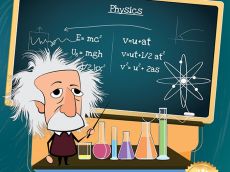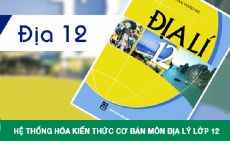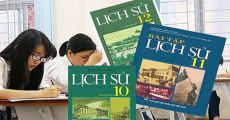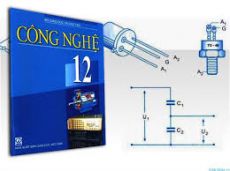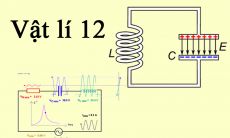Read the following passage and mark the letter A, B, C, or D on your answer sheet to indicate the correct answer to each of the questions from 36 to 42.
TV has transformed politics in the USA by changing the way in which information is disseminated, by altering political campaigns, and by changing citizen's patterns of response to politics. By giving citizens independent access to the candidates, television diminished the role of the political party in the selection of the major party candidates. By centering politics on the person of the candidate, television accelerated the citizen's focus on character rather than issues.
TV has altered the forms of political communication as well. The messages on which most of us rely are briefer than they once were. The stump speech, a political speech given by traveling politicians and lasting 3/2 to 2 hours, which characterized nineteenth-century political discourse, has given way to the 30-second advertisement and the 10 second "sound bite" in broadcast news. Increasingly the audience for speeches is not that standing in front of the politician but rather the viewing audience who will hear and see a snippet of the speech on the news.
In these abbreviated forms, much of what constituted the traditional political discourse of earlier ages has been lost. In 15 or 30 seconds, a speaker cannot establish the historical context that shaped the issue in question, cannot detail the probable causes of the problem, and cannot examine alternative proposals to argue that one is preferable to others. In snippets, politicians assert but do not argue.
Because television is an intimate medium, speaking through it require a changed political style that was more conversational, personal, and visual than that of the old-style stump speech. Reliance on television means that increasingly our political world contains memorable pictures rather than memorable words. Schools teach us to analyze words and print. However, in a word in which politics is increasingly visual, informed citizenship requires a new set of skills.
Recognizing the power of television's pictures, politicians craft televisual, staged events, called pseudo-event, designed to attract media coverage. Much of the political activity we see on television news has been crafted by politicians, their speechwriters, and their public relations advisers for televised consumption. Sound bites in news and answers to questions in debates increasingly sound like advertisements.
Câu 36 : What is the main point of the passage?
Suy nghĩ và trả lời câu hỏi trước khi xem đáp án
Lời giải:
Báo saiĐáp án D
Ý chính của bài đọc là gì?
A. Các công dân Mỹ hiện nay được cung cấp nhiều thông tin về chính trị hơn vì truyền hình đưa tin
B. Công dân Mỹ thích xem các chính trị gia trên truyền hình hơn trực tiếp.
C. Nền chính trị ở Mỹ đã trở nên gây tranh cãi nhiều hơn kế từ khi truyền hình ra đời.
D. Nền chính trị ở Mỹ đã được thay đổi đáng kể nhờ truyền hình.
Thông tin trong bài: "TV has transformed politics in the USA by changing the way in which information is disseminated, by altering political campaigns, and by changing citizen's patterns of response to politics."
- 'TV has altered the forms of political communication as well. The messages on which most of us rely are briefer than they once were."
Câu 37 : The word "disseminated" in paragraph 1 is closest in meaning to_____________.
Suy nghĩ và trả lời câu hỏi trước khi xem đáp án
Lời giải:
Báo saiĐáp án C
- disseminate ~ spread (v): lan truyền, phổ biến - analyze (v): phân tích
- discuss (v): thảo luận - store (v): lưu trữ
TV has transformed politics in the USA by changing the way in which information is disseminated, by altering political campaigns, and by changing citizen's patterns of response to politics. (Truyền hình đã thay đổi nền chính trị ở Mỹ bằng cách thay đổi cách thức lan truyền thông tin, bằng cách thay đổi các chiến dịch chính trị và bằng cách thay đổi cách phản ứng của người dân đối với chính trị.)
Câu 38 : It can be inferred that before the introduction of television, political parties_____________.
Suy nghĩ và trả lời câu hỏi trước khi xem đáp án
Lời giải:
Báo saiĐáp án A
Có thể suy ra rằng trước khi truyền hình ra đời, các đảng phái chính trị____________.
A. có ảnh hưởng nhiều hơn đến việc lựa chọn các ứng cử viên chính trị
B. chi nhiều tiền hơn để thúc đẩy các ứng cử viên chính trị của mình
C. thu hút thêm thành viên
D. nhận được nhiều tiền hơn
Thông tin trong bài: "By giving citizens independent access to the candidates, television diminished the role of the political party in the selection of the major party candidates..." (Bằng cách cho công dân cơ hội tiếp cận độc lập với các ứng cử viên, truyền hình đã làm giảm vai trò của đảng chính trị trong việc lựa chọn các ứng cử viên của đảng lớn...)
Câu 39 : The author mentions the "stump speech" in paragraph 2 as an example of_____________
Suy nghĩ và trả lời câu hỏi trước khi xem đáp án
Lời giải:
Báo saiĐáp án C
Thông tin trong bài: 'The stump speech, a political speech given by traveling politicians and lasting 3/2 to 2 hours, which characterized nineteenth-century political discourse, has given c way to the 30-second advertisement and..." (Bài diễn văn để tranh cử, một bài phát biểu chính trị được cấc chính trị gia đưa ra và kéo dài từ 1 tiếng rưỡi đến 2 tiếng, đặc trưng cho bài diễn văn chính trị thế kỷ 19, đã nhường chỗ cho quảng cáo dài 30 giây và...)
Câu 40 : The word "that" in paragraph 2 refers to_____________.
Suy nghĩ và trả lời câu hỏi trước khi xem đáp án
Lời giải:
Báo saiĐáp án A
Thông tin trong bài: "Increasingly, the audience for speeches is not that standing in front of the politician but rather the viewing audience who will hear and see a snippet of the speech on the news." (Càng ngày khán giả của các bài phát biểu không chỉ là những người đứng trước mặt chính trị gia mà còn là những người sẽ nghe và nhìn thấy một đoạn trích ngắn của bài phát biểu trên tin tức.) _ "that" đề cập đến "audience"
Câu 41 : According to the passage, as compared with televised speeches, traditional political discourse was more successful at_____________.
Suy nghĩ và trả lời câu hỏi trước khi xem đáp án
Lời giải:
Báo saiĐáp án B
Theo bài đọc, so với các bài diễn văn trên truyền hình, diễn ngôn chính trị truyền thống thành công hơn ở việc_____________.
A. cho phép đưa tin về các ứng cử viên chính trị
B. đặt các vấn đề chính trị trong bối cảnh lịch sử
C. làm cho chính trị dường như gần gũi hơn với công dân
D. cung cấp thông tin chi tiết về hành vi ứng xử riêng của ứng cử viên
Thông tin trong bài: "In these abbreviated forms, much of what constituted the traditional political discourse of earlier ages has been lost. In 15 or 30 seconds, a speaker cannot establish the historical context that shaped the issue in question, cannot detail the probable causes of the problem, and cannot examine alternative proposals to argue that one is preferable to others." (Trong những hình thức bị lược bớt, phần lớn những gì tạo thành diễn ngôn chính trị truyền thống của các thời đại trước đã bị bỏ. Trong 15 hoặc 30 giây, một người nói không thể thiết lập bối cảnh lịch sử hình thành vấn đề đang được đề cập, không thể nêu chi tiết nguyên nhàn có thể xảy ra của vấn đề và không thể kiểm tra các đề xuất thay thế để tranh luận rằng người này được yêu thích hơn người khác.)
Câu 42 : According to paragraph 5, staged political events are created so that politicians can_____________.
Suy nghĩ và trả lời câu hỏi trước khi xem đáp án
Lời giải:
Báo saiĐáp án B
Theo đoạn 5, các sự kiện chính trị được dàn dựng để các chính trị gia có thể_____________.
A. tạo thêm thời gian để thảo luận về các vấn đề chính trị
B. cho bản thân mình chiếm nhiều sóng truyền hình hơn
C. dành nhiều thời gian nói chuyện với công dân
D. tham gia vào các cuộc tranh luận với các đối thủ của mình
Thông tin trong bài: "Recognizing the power of television's pictures, politicians craft staged events, called pseudo-event, designed to attract media coverage." (Nhận thức được sức mạnh của hình ảnh trên truyền hình, các chính trị gia đã tạo ra các sự kiện được dàn dựng, được gọi là sự kiện giả, được thiết kế để thu hút sự đưa tin của các phương tiện truyền thông.)
Đề thi thử THPT QG năm 2021 môn Tiếng Anh
Trường THPT Trần Quý Cáp Lần 2
